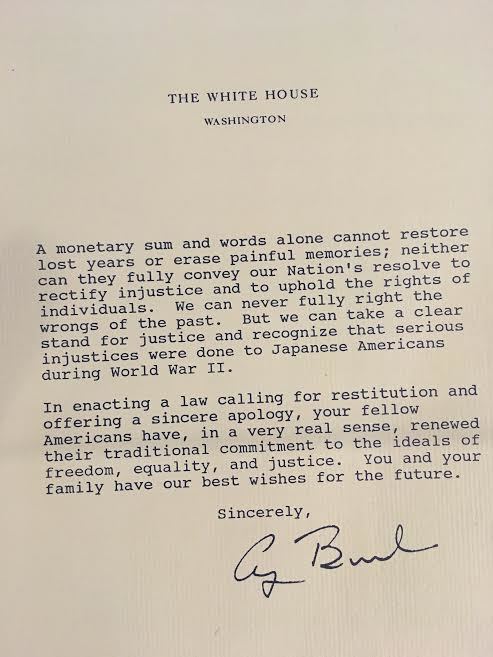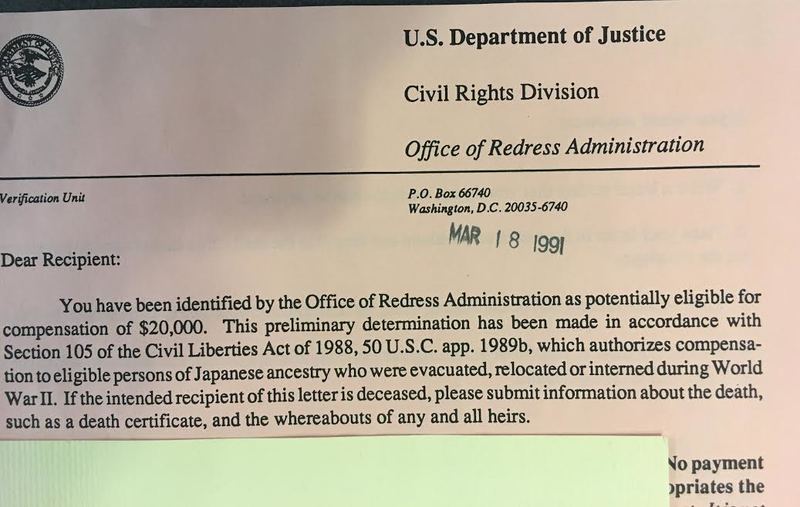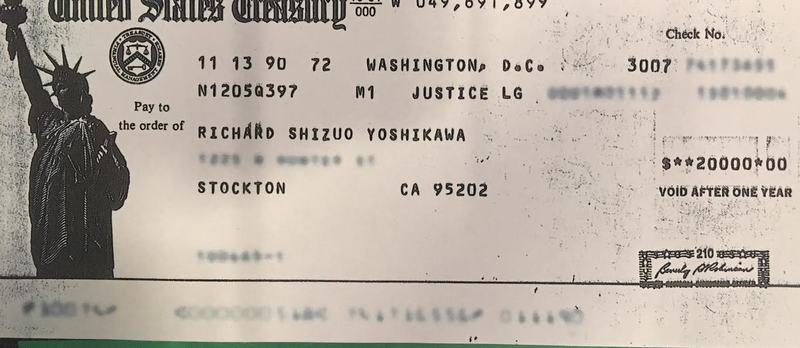Reparations
As stated before, Japanese and Japanese-Americans helped the Delta thrive economically because of agrilcultural production and labor. They owned farms, land, and homes throughout the Delta region. Since they had property under their name and needed somebody to watch over it while they stayed in concentration camps, they entrusted others - they could not have a Japanese friend watch the property because they were sent away as well. Because of the immediate evacuation, property owners did not have time to make arragenments, so mortgages went unpaid and they lost the property and sold to a new owner, crops were uncared for in farms, and local Japanese businesses went under. In addition, for people who could not find somebody to entrust were rushed to sale their property and took tremendous losses. "The total dollar value of property loss has been estimated at around $1.3 billion. The net income losses are estimated at around $2.7 billion".[4]
With that into consideration, The Civil Liberties Act was introduced in 1987, sponsored by Thomas Foley [D-WA-5]. Under the Civil Liberties Act of 1987-88, the $20,000 will only be given to alive individuals, and in the first year it will pay-out $500 million, the following year $400 million, then $200 million, then $200 million, then 100$ million in each of the following two years. $1.25 billion was the estimated cost. The eldest of internees will be paid first because, referring to Senator Matsunaga, a Democrat who served during World War II, ''They are dying daily and weekly, so we have to take care of the elderly.”[5] In addition to the national apology and payments, the legislation established a $50 million fund for educational purposes and pardons.
[4] Robyn Roth, 'History of Japanese Internment Camps," Poynter, last modified December 2, 2008. http://aasreadingoutline.blogspot.com/
[5] Irvin Molotsky, “Senate Vote to Compensate Japanese-American Internees,” New York Times, accessed April 10, 2017, http://www.nytimes.com/1988/04/21/us/senate-votes-to-compensate-japanese-american-internees.html
Created by Collin Craig, Mario Tosqui, Oscar Lopez, and Devin Ramstead


